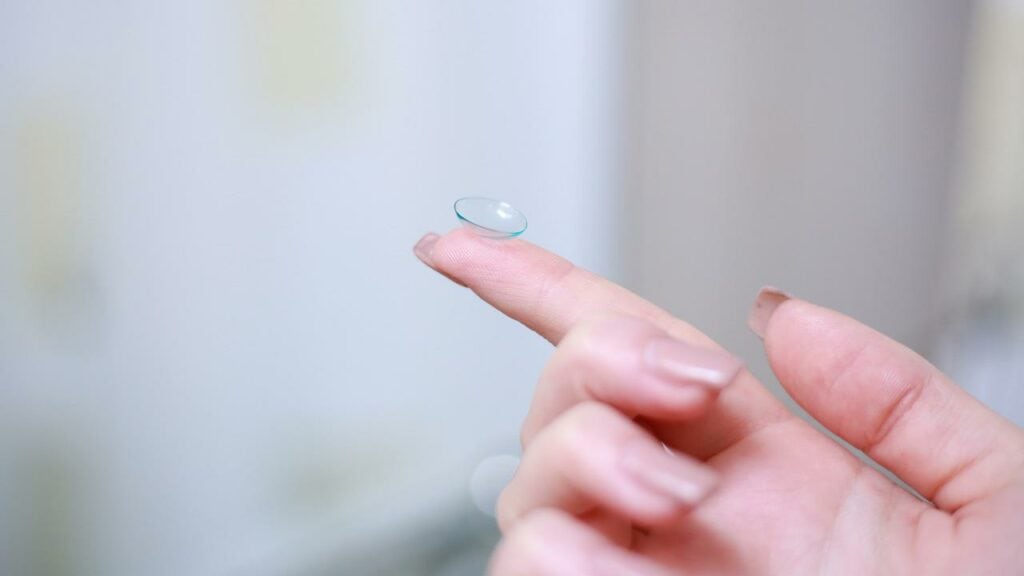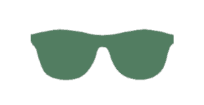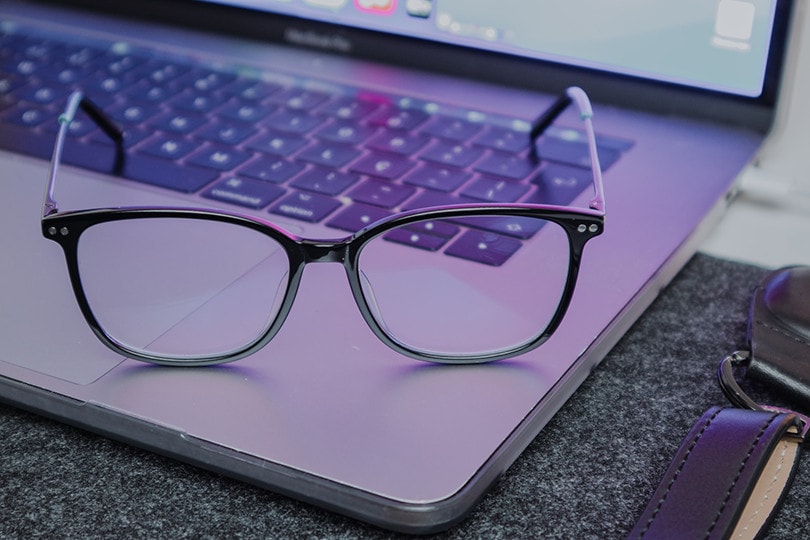Can You Wear Blue Light Glasses With Contacts? A Complete Overview
Last Updated on

Are you looking to wear blue light glasses because of their many benefits but aren’t sure whether you can use them with your daily contacts? The good news is that we have an answer: blue light glasses can be worn while you are wearing contacts, and there are no harmful side effects or health issues to be worried about! We’ll go into details below in addition to some facts about blue light, blue light glasses, and a few other questions you might have.

Can I Wear Blue Light Glasses if I Have Prescription Glasses?
You may be able to talk to your eye doctor to recommend or supply you with another set of prescription glasses with a blue light coating manufactured into the lenses. This will be your best bet since they will work if you are near or far-sighted and still block blue light.

What Are Blue Light Glasses For? Why Should You Wear Them?
Blue light glasses, also referred to as “computer glasses,” are a tool to prevent blue light from getting into your eyes, as this can cause countless issues in your daily life, namely, sleep. Blue light glasses block out the harmful, intense blue light and improve the consistency of your bedtime cycle. Sleep is one of the most important areas of your life!
How Blue Light Affects a Good Night’s Sleep
During the nighttime, our eyes adjust to the darkness and indicate that it’s time for bed. This is also called the circadian rhythm or sleep cycle. However, modern technology and devices have interfered with this natural process, causing us to stay awake longer. Our brains think that it’s still daytime when we see the bright screens of our cell phones, computers, TVs, and other electronics. This is one reason many phones have a setting for “night mode” that makes the screen appear orange. Blue light glasses are very similar in this regard and have a warm tone.

Other Adverse Effects from Blue Light
An excess of blue light in the eyes may bes a potential risk for cancer, and some studies suggest nighttime workers have a higher chance of getting prostate and breast cancer. Additionally, there is also evidence that blue light contributes to eye strain and migraines, but the evidence is not conclusive.

Conclusion
Ultimately, you shouldn’t have any issues wearing your contacts with blue light lenses. This is a massive win for health-minded individuals who want to ensure they can fall asleep properly regardless of their digital habits. We hope this post has answered your questions about blue light glasses and their benefits.
Featured Image Credit: Martin Slavoljubovski, Pixabay
About the Author Robert Sparks
Robert’s obsession with all things optical started early in life, when his optician father would bring home prototypes for Robert to play with. Nowadays, Robert is dedicated to helping others find the right optics for their needs. His hobbies include astronomy, astrophysics, and model building. Originally from Newark, NJ, he resides in Santa Fe, New Mexico, where the nighttime skies are filled with glittering stars.
Related Articles:
Monocular vs Telescope: Differences Explained (With Pictures)
Can You Use Binoculars to Look At Stars? How to Choose the Right Pair
How to Clean a Refractor Telescope: Step-by-Step Guide
How to Clean a Telescope Eyepiece: Step-by-Step Guide
How to Clean a Rifle Scope: 8 Expert Tips
What Is a Monocular Used For? 8 Common Functions
How to Clean a Telescope Mirror: 8 Expert Tips
Brightfield vs Phase Contrast Microscopy: The Differences Explained
